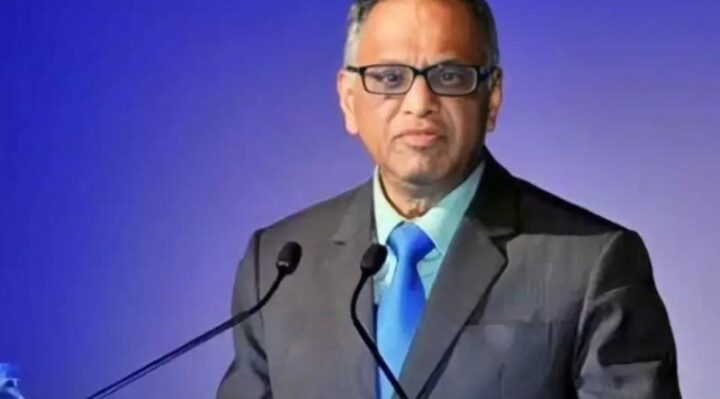Murthy dismisses artificial intelligence as a threat to jobs, saying the human mind is the most flexible instrument


The significance of producing enormous volumes of information that is specific to India’s cultural and developmental setting is emphasized by Narayana Murthy.
Though AI has been touted as the next big thing in technology, Infosys founder NR Narayana Murthy sees it as a revolutionary way to enhance human skills rather than a danger to jobs. Murthy discusses the significant implications of artificial intelligence (AI) in an exclusive conversation with Moneycontrol. He highlights the technology’s importance in problem-solving and the idea that the human mind is the “most flexible instrument.”
Speaking about the quick speed at which AI is developing, Murthy praises the technology for enhancing human intelligence. From supervised algorithmic thinking to ChatGPT-4, he recognizes the critical function that data plays in forming machine learning.
“A large amount of data is required for algorithms, regardless of whether they are unsupervised or semi-supervised. You must gather a large amount of data. Because machine learning is ultimately just a very complicated form of pattern matching. Large language models are available even with ChatGPT. Pattern matching is everything, according to the 77-year-old.
Murthy speaks for the transition from an oral to a written culture and emphasizes the need to provide a large quantity of relevant information that is specific to India’s developmental and cultural setting.
By making comparisons with past technical advances, Murthy reduces concerns that AI will make programmers redundant. In light of the case tools of the 1970s, he highlights that the human mind is the most versatile tool. According to Murthy, AI may be used to supplement human creativity rather than to replace it. Its real potential resides in solving increasingly difficult issues, which would improve society as a whole.
“These tools could not handle the moment you started thinking about bigger and more complex problems.” Therefore, even though I could be mistaken, I believe that we will begin to solve more difficult problems as long as we use AI as a tool to help people accomplish more and more complex tasks,” he continued.
Murthy also points out domains where AI might improve human capabilities, such autonomous driving and precise surgery.
It’s amazing that artificial intelligence can be used to manage nuclear reactors, or that power plants can be controlled, right? Thus, there are situations in which humans can leverage AI to improve system performance and shorten reaction times. And surgery-precision surgery, for instance. Robotics and AI are incredibly helpful in precise surgery, but there are some drawbacks as well, according to Murthy.
“As long as we make sure that these technologies don’t end up in the hands of bad people, like I mentioned earlier.” That is all. However, the instant a bad person has a gun, we have witnessed what has occurred in the US,” he said in closing.


